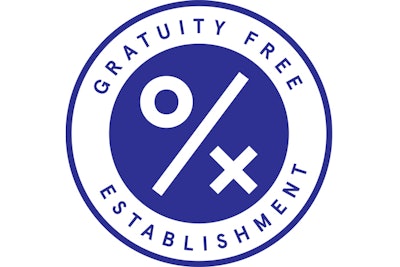
The biggest menu changes at select New York restaurants don’t have to do with some trendy ingredient or extravagant dessert creation. Instead, it’s the prices that are changing as restaurants enact no-tipping policies.
So what does the no-tipping movement mean for the event industry? To start with, contracts will look different. Traditionally, pricing for events has included a food cost per person, plus tax, plus gratuity or a service fee. New contracts will drop the gratuity line and fold the increase into food and beverage costs.
Union Square Hospitality Group, whose announcement late last year that it would eliminate tipping pushed the movement forward in New York, already has started revising private dining contracts at the Modern, said Sabato Sagaria, chief restaurant officer at Union Square Hospitality Group. In November, the Modern became the first of the restaurant group’s restaurants to eliminate tipping. Sagaria discussed how Danny Meyer’s restaurant group prepared for and implemented the change at a recent standing-room-only town hall meeting for the restaurant industry organized by Journee, which offers continuing education for hospitality professionals.
Another panelist, Gabe Stulman, founder of Happy Cooking Hospitality, eliminated tipping at the West Village restaurant Fedora as of January 4. While the transition in the main dining room has been nerve-wracking, he expects it to be smoother for private events because the streamlined contracts will be easy to understand. “I actually have found that for private events, it’s the easiest thing for any [event planner] to just be totally fine with,” said Stulman.
Some hiccups may arise when event planners sit down to evaluate proposals from multiple restaurants—some that include a separate service charge and others that have eliminated it.
“They want to be able to compare apples to apples,” Journee founder Anthony Rudolf told BizBash after the event. “You may end up seeing less itemization as an event planner on these contracts. … I would encourage event planners to do the math about what comes out at the bottom line, not the itemized line.”
While restaurateurs face a steep curve in educating consumers on the new pricing model, the transition should be smoother for event planners because of the one-on-one nature of planning events, Rudolf said. Most restaurants have private dining mangers or catering managers who can talk through changes to their pricing structures and answer any questions.
At this point, only a handful of restaurants have adopted the gratuity-free model, but Rudolf said many more are watching carefully to see how it works. He expects it to catch on initially at “full-service experiential restaurants” rather than everyday eateries.
“New York is trying to make it stick and collectively working together to make sure it becomes part of the eco-system going forward,” Rudolf said. “If 2016 isn’t the year, 2017 will be if the majority of those [trying it now] can pull it off.”



















